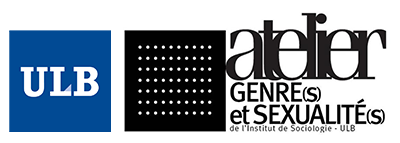Dans la même rubrique
- AGS
- FR
- Le Centre
- Archives de l'Atelier
- 2016
-
Partager cette page
Climbing Glass Fences: Gender in Global Academia
22 juin

Kathrin Zippel
(Northeastern University)
Salle Henri Janne, Institut de Sociologie (15e étage), Bâtiment S
Avenue Jeanne, 44, 1050 Bruxelles
Abstract
This talk addresses the challenges and benefits of integrating women into global academia, international research collaborations in particular. By bringing together the concerns of gender and the globalization of science, Zippel’s research contributes to ongoing debates about how to explain the “leaky pipeline,” that is, the steady attrition of girls and women over the course of education and academic careers, all the way to leadership positions. Policy debates on advancing women in science and research on gender and academia do not take into account how academia is globalizing. This study builds on but also departs from the national focus of debates and studies on gender, science, and organizations by looking at a less explored and increasingly important factor: how the globalization of scientific work—in particular the challenges and opportunities of international collaboration and mobility—contributes to the underrepresentation of women in science, technology, engineering, and mathematics (STEM) fields and, more generally, to gender inequalities in academia.
Biographie
Kathrin Zippel is an Associate Professor of Sociology at Northeastern University, currently a residential fellow at the Women and Public Policy Program, Harvard Kennedy School, and a Local Affiliate at Harvard University’s Minda de Gunzburg Center for European Studies.
Kathrin Zippel has published on gender politics in the workplace, public and social policy, social movements, welfare states, and globalization in the United States and Europe. Her book The Politics of Sexual Harassment in the United States, the European Union and Germany (Cambridge University Press) won several awards. In recent years.
Zippel has held a Humboldt Research fellowship at the Max Planck Institute for the Study of Societies in Cologne and the Ludwig-Maximilians-University in Munich; and was a Guest at the WZB Social Science Research Center in Berlin. Zippel received a Ph.D. from the University of Wisconsin-Madison and was a post-doc at the European Union Center of New York at Columbia University.
